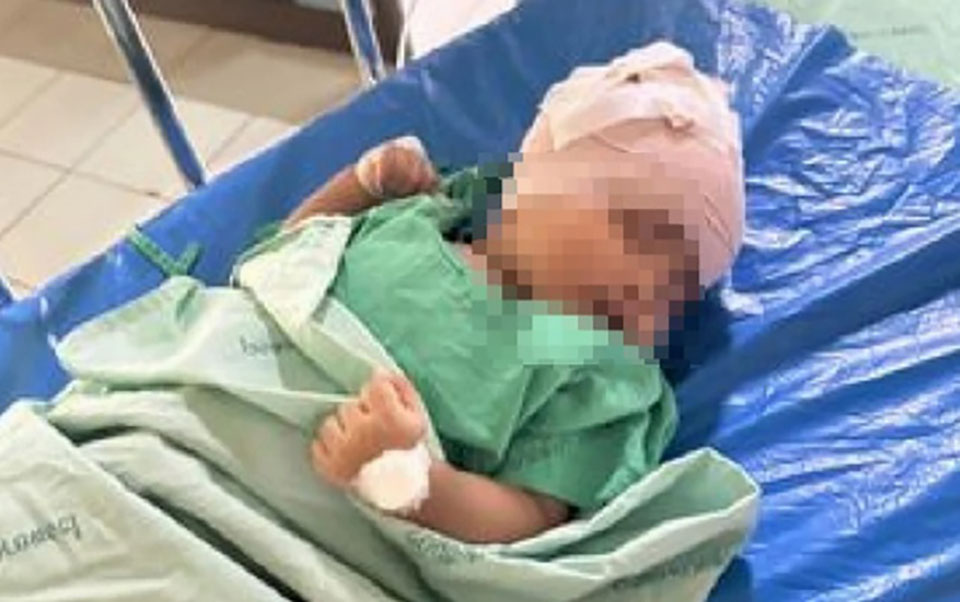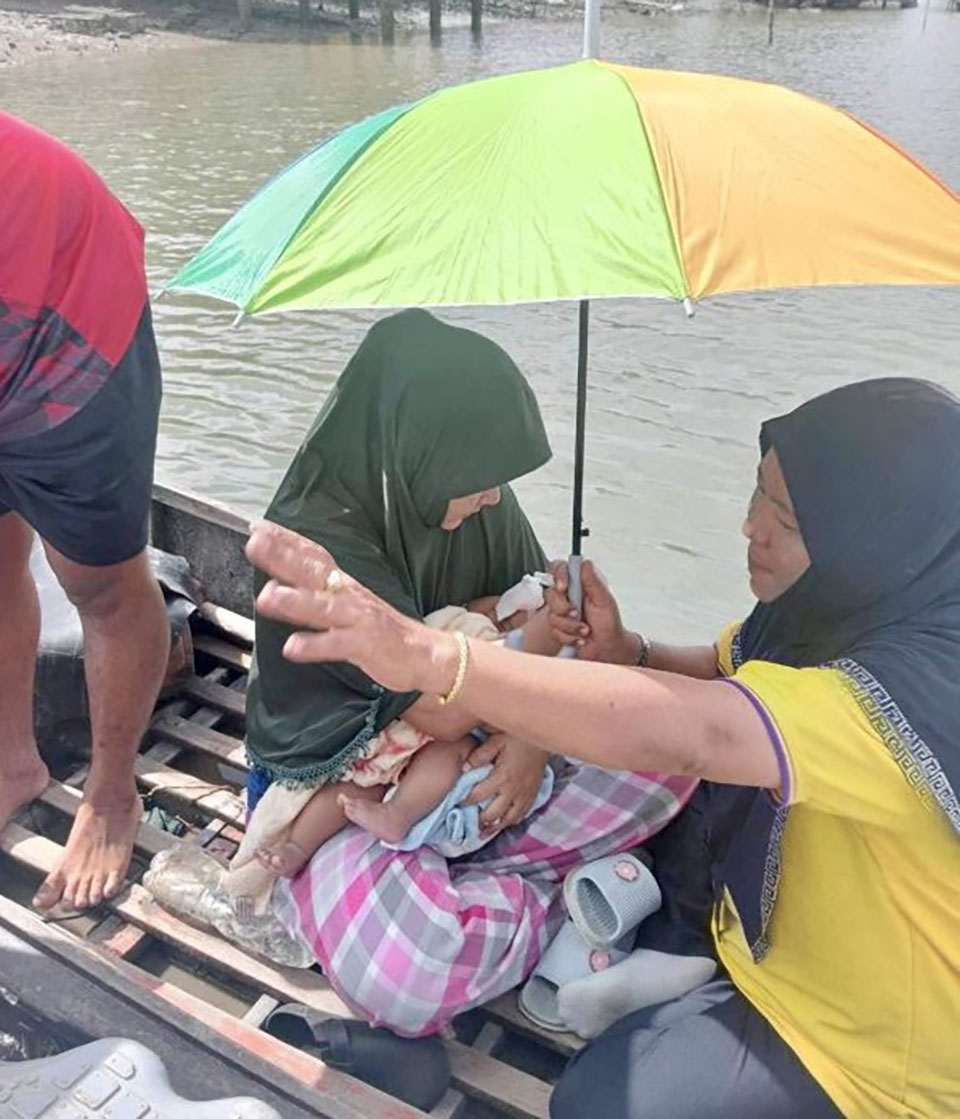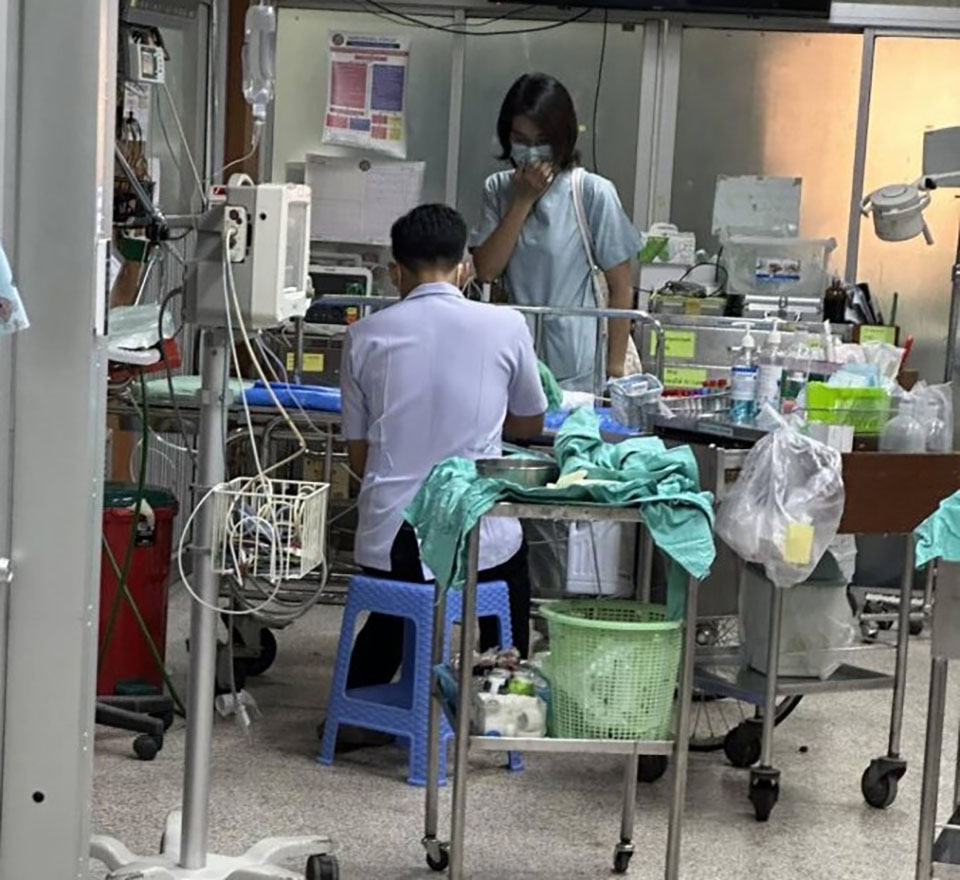
The surgery went well for a 3-month-old infant who was bitten by crab-eating macaques, but the child still requires a ventilator.
The medical team acknowledges this as the first case where a child as young as 3 months old has been bitten by macaques to the extent of fracturing the skull and puncturing the brain tissue.
The incident involved a 3-month-old boy living on Maipai Island in Muang District, Phang Nga. The child was attacked in his house by two aggressive macaques from the nearby mangrove forest. The macaques snatched the milk bottle the baby was feeding on. This led to a struggle, and the macaques bit the baby’s head, leaving 5-6 bite marks and an open skull wound with bleeding.
Family members rushed to transport the infant to a local hospital on the island to stop the bleeding, treat the wound, and then transferred the baby to the pier for further coordination with the rescue units from Phang Nga Hospital.

Upon arrival, the medical team conducted a CT scan and provided initial treatment, revealing severe injuries as the bite penetrated deep into the brain tissue. The boy was referred to Vachira Phuket Hospital for the surgery.
Dr. Veerasak Lorthongkam, the Director of Vachira Phuket Hospital, stated that the child has a 5-6 centimeters long wound on the left side of the skull and a bone of the skull reaching the brain tissue.
Despite the successful surgery, medical professionals closely monitor the child in the intensive care unit. The child has shown positive signs, such as improved consciousness, movement of limbs.
A pediatrician is overseeing the treatment for potential infections caused by monkey saliva, emphasizing the need to closely monitor for any signs of infection in the brain.
Dr. Veerasak said the child will be administered antibiotics to prevent infection. Although the overall condition of the child has improved since yesterday (November 14), he is still in a critical condition. (TNA)







